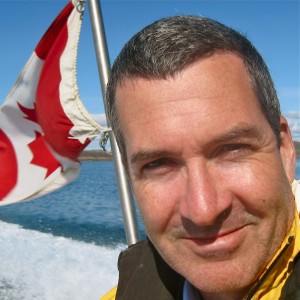In the world of native advertising, sponsored content, journalists supplementing their income with paid speaking gigs and the freelance economy, it’s hard sometimes to know where “news” content is coming from and what has influenced it. The personal disclosure statement is a helpful tool in identifying potential sources of influence and conflict of interest.
Trust matters
David Akin is a capable journalist who found himself, along with 200 others, out of a job when the Sun News Network ceased broadcasting last week. I’ve followed his Twitter feed, Facebook profile and online writing for several years. So, when news broke that Sun News Network, where he hosted a nightly news program, had abruptly shut down, I wondered how this would affect him. Yesterday morning, he posted a piece on the Maclean’s site about Sun News and its controversial programming. And at the bottom of the post, he included a link to DavidAkin.com. I clicked on it out of curiosity to see what is there. Basically, it’s an online business card site. But with one very important distinguisher. One of the clearest disclosure statements I’ve seen from a journalist. Here’s Akin’s disclosure in full:
DISCLOSURE: I am a freelance journalist and, as result, the journalism I do is paid for by the news organizations that purchase it. I receive no fees, considerations, etc. for organizations or individuals I write about or speak about. I may, from time to time, accept speaking engagements from non-news organizations. I will endeavour to keep a list of those here. I am not, nor have I ever been during my 30 years as a professional journalist, a member of any political party. No member of my immediate family is a member of or campaigns on behalf of any political party. Neither I nor anyone in my immediate family own shares or equity in any corporation or business. Any investments I have are in widely-held mutual funds. If you think other disclosures are appropriate in this space, I’d like to hear from you. All of my contact details are always at www.davidakin.com.
Pretty clear. No equivocation. Akin clearly draws a line about what he does and doesn’t do. The man’s not for sale to corporate interests. In this era of equivocation about journalistic standards, David Akin’s disclosure stands out like a breath of fresh air. I wish every journalist could be this straightforward in their disclosure.
Context
Jay Rosen has taken a diary approach to his disclosure.
Jeff Jarvis discloses business and media ties, investments and a wide variety of potential sources of influence on his views.
Richard Gingras and Sally Lehrman wrote about the steps that might be taken to earn trust in journalism.


